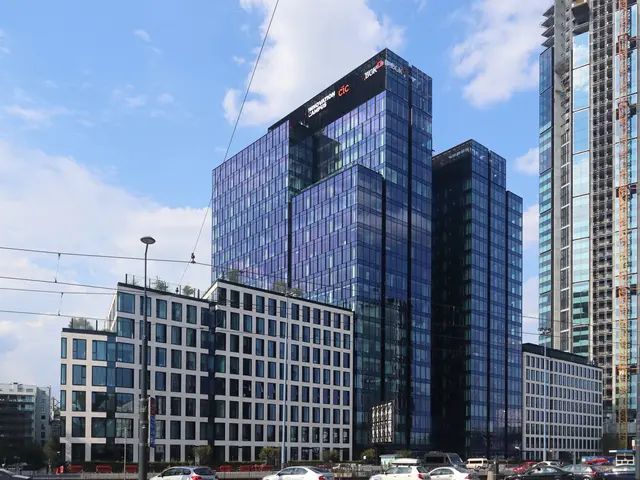Navigating Work: Job-Hopping or Long-Term Employment? Understanding the Job Market Today
- Article By Daniel Bakir
- Approximate Reading Time: 5 Minutes
Changing careers frequently or staying devoted to a single job? Preferences of today's workforce seekers - Job stability versus frequent employment changes?
In today's digital age and the rise of artificial intelligence, many industries are undergoing significant changes. Stability and security in the workplace have become concerns for many. Let's take a closer look at the current job market as surveyed by Softgarden with input from 5475 diverse job seekers.
1. The Balancing Act
In a challenging job market, long-term employment appears essential for many. A whopping 96% of respondents rate long-term employment as "important" or "very important." Only 4% are disinterested in job stability. Those with less education value job stability significantly more than academics, and full-time employees place a higher emphasis on stability compared to their part-time counterparts.
However, what does "job stability" mean today? Just 28% are satisfied with the lifelong employment model of loyalty to one employer throughout their career. A majority of 52% are content with job stability as long as occasional changes occur every five to ten years. One in five respondents even embraces job-hopping, taking advantage of opportunities as they arise.
2. Money or Security?
The value individuals place on job security is evident in their willingness to compromise salary for it. More than half of respondents would accept a reduced salary for better job security, with some even willing to accept a 10% reduction or more. It is important to note that women and individuals with lower education levels are less inclined to accept salary cuts.
3. Moving Forward
Geographic mobility is an integral aspect of finding new opportunities. Most respondents (56%) would move to another city for a new job, with one in four willing to relocate more than 300 kilometers. Younger people are generally more willing to relocate than older individuals, and men are more likely to move than women. Factors such as family circumstances and the presence of children were not addressed in the survey.
4. Reinventing Oneself
Many individuals recognize the need for career adaptability given the rapid pace of change. Approximately three out of four believe that their jobs will dramatically change within the next five years. Interestingly, over 90% expressed openness to changes, as shown by their willingness to adapt to new job requirements (98%), switch industries (63%), or even do completely different jobs (67%). However, only one-third would be open to more frequent job changes.
5. Upskilling for the Future
Professional development is crucial for staying competitive in the job market. Six out of ten plan to pursue longer training courses of half a year or more, with younger people being especially eager for this opportunity. The majority (90%) opt for shorter seminars and training courses, particularly women and academics. Furthermore, academics exhibit a strong interest in self-directed learning methods such as reading books, listening to podcasts, or watching tutorial videos to acquire new skills, such as artificial intelligence.
6. The Employer's Role
Respondents view themselves and their employer as both responsible for their professional development. The choice between staying with an employer for the long term or changing jobs depends on factors such as the employer investing in their training (53% consider it "very important" or "important"). Despite the importance of financial incentives, training offerings are now considered a strict criterion in the competition for skilled workers. Surprisingly, a majority of respondents prefer their employer to invest in their training rather than providing higher salaries, more vacation time, or additional work hours for further training.
- Keywords: Job market, employment, job change, employer, relocation, artificial intelligence, digitalization.
(Enrichment data includes concepts such as job-hopping trends, long-term employment preferences, flexibility vs. stability in the job market, and the renewed interest in long-term career development.)
- In the current job market, where technology and artificial intelligence are transforming many industries, a majority of job seekers place a high importance on long-term employment, with 52% content with job stability permitting occasional changes every five to ten years.
- As part of career development and self-improvement, education and self-development have garnered significant interest among respondents, particularly academics who show a strong interest in learning about artificial intelligence and other technological advancements through self-directed learning methods.






